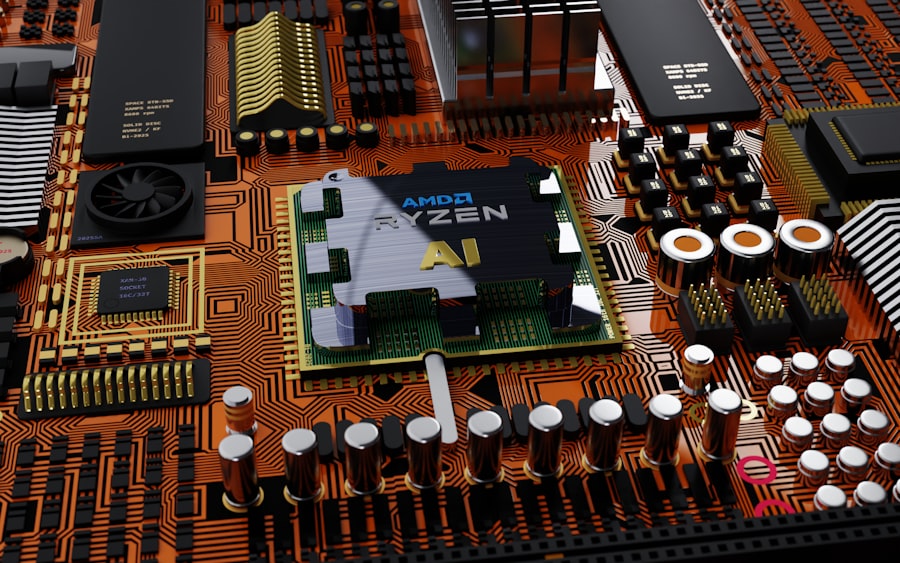Programmatic advertising has revolutionized the way brands connect with their audiences in the digital landscape. This automated approach to buying and selling ad space allows marketers to target specific demographics with precision, optimizing their campaigns in real-time. By leveraging data-driven insights, programmatic advertising enables advertisers to reach potential customers at the right moment, enhancing the effectiveness of their marketing strategies.
The rise of programmatic advertising has been fueled by the increasing availability of data and advancements in technology, making it a cornerstone of modern digital marketing. As the digital ecosystem continues to evolve, programmatic advertising is becoming more sophisticated, incorporating various technologies and methodologies to improve efficiency and effectiveness. Advertisers can now utilize a range of platforms and tools that facilitate the buying process, from demand-side platforms (DSPs) to supply-side platforms (SSPs).
This seamless integration of technology not only streamlines the ad buying process but also allows for greater transparency and accountability in advertising spend. As brands seek to maximize their return on investment, understanding the intricacies of programmatic advertising is essential for navigating the competitive landscape.
Key Takeaways
- Programmatic advertising is the automated buying and selling of online advertising space, allowing for more targeted and efficient ad placements.
- Artificial intelligence (AI) refers to the simulation of human intelligence processes by machines, including learning, reasoning, and self-correction.
- AI is integrated into programmatic advertising to optimize ad targeting, placement, and performance through data analysis and predictive algorithms.
- The benefits of AI in programmatic advertising include improved ad targeting, real-time optimization, and cost efficiency.
- Challenges of implementing AI in programmatic advertising include data privacy concerns, algorithm bias, and the need for skilled professionals to manage AI systems.
Understanding Artificial Intelligence
Artificial intelligence (AI) refers to the simulation of human intelligence processes by machines, particularly computer systems. These processes include learning, reasoning, problem-solving, perception, and language understanding. AI has made significant strides in recent years, driven by advancements in machine learning, natural language processing, and data analytics.
As a result, AI technologies are increasingly being integrated into various industries, transforming how businesses operate and interact with their customers. The ability of AI to analyze vast amounts of data quickly and accurately has opened up new possibilities for innovation and efficiency across sectors. In the realm of digital marketing, AI is particularly valuable due to its capacity to process and interpret complex datasets.
By utilizing algorithms that can learn from historical data, AI can identify patterns and trends that may not be immediately apparent to human analysts. This capability allows marketers to make informed decisions based on predictive analytics, enhancing their ability to target audiences effectively. Furthermore, AI can automate repetitive tasks, freeing up valuable time for marketing professionals to focus on strategic initiatives.
As businesses increasingly recognize the potential of AI, its role in shaping the future of marketing continues to expand.
The Integration of Artificial Intelligence in Programmatic Advertising

The integration of artificial intelligence into programmatic advertising has transformed how brands approach their marketing strategies. By harnessing AI technologies, advertisers can optimize their campaigns in real-time, adjusting bids and targeting parameters based on performance metrics. This dynamic approach allows for more efficient allocation of resources, ensuring that ad spend is directed toward the most effective channels and audiences.
Additionally, AI can analyze user behavior across multiple touchpoints, providing insights that help marketers refine their targeting strategies and improve overall campaign performance. Moreover, AI-driven algorithms can enhance the creative aspects of programmatic advertising by personalizing ad content for individual users. By analyzing data such as browsing history, demographic information, and engagement patterns, AI can tailor advertisements to resonate with specific audiences.
This level of personalization not only increases the likelihood of user engagement but also fosters a more meaningful connection between brands and consumers. As a result, the integration of AI into programmatic advertising not only streamlines processes but also elevates the overall effectiveness of marketing efforts.
The Benefits of Artificial Intelligence in Programmatic Advertising
The benefits of incorporating artificial intelligence into programmatic advertising are manifold, significantly enhancing the capabilities of marketers. One of the most notable advantages is improved targeting precision. AI algorithms can analyze vast datasets to identify specific audience segments that are most likely to convert, allowing advertisers to focus their efforts on high-potential leads.
This targeted approach minimizes wasted ad spend and maximizes return on investment by ensuring that ads are shown to users who are genuinely interested in the product or service being offered. In addition to enhanced targeting capabilities, AI also facilitates real-time optimization of advertising campaigns. By continuously monitoring performance metrics such as click-through rates and conversion rates, AI can make instantaneous adjustments to bidding strategies and ad placements.
This agility enables marketers to respond swiftly to changing market conditions and consumer behaviors, ensuring that their campaigns remain relevant and effective. Furthermore, AI can provide predictive analytics that help marketers anticipate future trends and consumer preferences, allowing them to stay ahead of the competition and adapt their strategies accordingly.
The Challenges of Implementing Artificial Intelligence in Programmatic Advertising
Despite the numerous advantages that artificial intelligence offers in programmatic advertising, there are also significant challenges associated with its implementation. One major hurdle is the complexity of integrating AI technologies into existing marketing infrastructures. Many organizations may lack the necessary technical expertise or resources to effectively deploy AI solutions, leading to potential inefficiencies or suboptimal results.
Additionally, the rapid pace of technological advancement means that marketers must continually update their knowledge and skills to keep up with emerging trends and tools. Another challenge lies in data privacy and security concerns. As AI relies heavily on data analysis to function effectively, marketers must navigate a landscape increasingly defined by stringent regulations regarding data usage and consumer privacy.
Ensuring compliance with laws such as the General Data Protection Regulation (GDPR) requires careful consideration and robust data management practices. Failure to address these concerns can result in legal repercussions and damage to brand reputation. Thus, while AI presents exciting opportunities for programmatic advertising, marketers must also be vigilant in addressing these challenges.
The Future of Artificial Intelligence in Programmatic Advertising

Looking ahead, the future of artificial intelligence in programmatic advertising appears promising as technology continues to evolve at an unprecedented pace. One potential development is the increased use of advanced machine learning techniques that enable even more sophisticated audience segmentation and targeting strategies. As algorithms become more refined, advertisers will be able to deliver hyper-personalized content that resonates deeply with individual consumers, further enhancing engagement rates and conversion potential.
Additionally, as AI technologies become more accessible, we may see a democratization of programmatic advertising practices across various industries. Smaller businesses that previously lacked the resources to compete with larger corporations may find themselves empowered by AI-driven tools that level the playing field. This shift could lead to a more diverse range of voices in digital marketing, fostering innovation and creativity as brands explore new ways to connect with their audiences.
Ultimately, the integration of artificial intelligence into programmatic advertising is likely to continue shaping the landscape of digital marketing for years to come.
Ethical Considerations in Artificial Intelligence and Programmatic Advertising
As artificial intelligence becomes increasingly integrated into programmatic advertising, ethical considerations must be at the forefront of discussions surrounding its implementation. One significant concern is the potential for bias in AI algorithms, which can lead to discriminatory practices in targeting and ad placements. If not carefully monitored, these biases can perpetuate stereotypes or exclude certain demographic groups from receiving relevant advertisements.
Marketers must prioritize fairness and inclusivity in their AI-driven strategies to ensure that all consumers are treated equitably. Another ethical consideration involves data privacy and consumer consent. With AI relying heavily on data collection and analysis, it is crucial for marketers to be transparent about how consumer information is used and ensure that individuals have control over their data.
Building trust with consumers is essential for long-term success in programmatic advertising; therefore, brands must adopt ethical practices that prioritize user privacy while still leveraging data for effective targeting. By addressing these ethical challenges head-on, marketers can foster a more responsible approach to integrating artificial intelligence into their advertising strategies.
The Impact of Artificial Intelligence on Programmatic Advertising
In conclusion, artificial intelligence has profoundly impacted programmatic advertising by enhancing targeting precision, optimizing campaign performance in real-time, and enabling personalized consumer experiences. As marketers increasingly embrace AI technologies, they are better equipped to navigate the complexities of the digital landscape while maximizing their return on investment. However, it is essential for businesses to remain vigilant about the challenges associated with implementing AI solutions, including technical complexities and ethical considerations surrounding data privacy.
Looking forward, the future of artificial intelligence in programmatic advertising holds immense potential for innovation and growth. As technology continues to advance and become more accessible, we can expect a more diverse range of voices in digital marketing as smaller businesses leverage AI-driven tools to compete effectively. Ultimately, by embracing both the opportunities and challenges presented by artificial intelligence, marketers can shape a more effective and responsible approach to programmatic advertising that benefits both brands and consumers alike.
If you’re exploring the impact of artificial intelligence on programmatic advertising, you might also be interested in understanding how AI can influence other digital marketing strategies. A relevant article that delves into this is about the best niches for affiliate marketing on Pinterest, which can be significantly enhanced by AI tools to optimize content and target audiences more effectively. You can read more about this topic and how AI integrates with digital marketing strategies by visiting Best Niches for Affiliate Marketing in Pinterest. This article provides insights into selecting profitable niches which can be crucial for leveraging AI in programmatic advertising as well.
FAQs
What is programmatic advertising?
Programmatic advertising is the automated buying and selling of online advertising space in real-time using algorithms and data. It allows advertisers to target specific audiences and optimize their ad campaigns more efficiently.
What is artificial intelligence (AI) in the context of programmatic advertising?
Artificial intelligence in programmatic advertising refers to the use of machine learning algorithms to analyze large amounts of data and make real-time decisions about ad placements, targeting, and bidding strategies. AI helps advertisers to optimize their campaigns and improve their return on investment.
How does AI improve programmatic advertising?
AI improves programmatic advertising by enabling more precise audience targeting, dynamic ad creative optimization, real-time bidding, and performance analysis. It can also help in identifying patterns and trends in consumer behavior to make more informed advertising decisions.
What are the benefits of using AI in programmatic advertising?
The benefits of using AI in programmatic advertising include increased efficiency, better targeting, improved campaign performance, cost savings, and the ability to handle large amounts of data in real-time. AI also allows for more personalized and relevant ad experiences for consumers.
What are some examples of AI technologies used in programmatic advertising?
Some examples of AI technologies used in programmatic advertising include natural language processing for contextual targeting, predictive analytics for ad performance forecasting, and computer vision for image and video recognition in ad content. Additionally, machine learning algorithms are used for audience segmentation and real-time bidding optimization.

